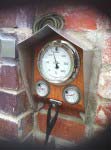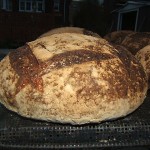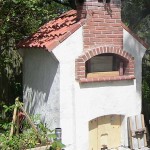Category: main menu • Portland cement menu • Hong Kong taels
Portland cement conversion
Amount: 1 Hong Kong tael (leung) of mass
Equals: 0.014 Japanese shō (shō) in volume
Converting Hong Kong tael to Japanese shō value in the Portland cement units scale.
TOGGLE : from Japanese shō into Hong Kong taels in the other way around.
CONVERT : between other Portland cement measuring units - complete list.
Conversion calculator for webmasters.
General Portland cement
General or common purpose Portland cement type (not any other weaker/cheaper cement replacement-version). It's the primary masonry binder hence bonding agent for mortars and concretes consisting of building sand, stones or other gravel aggregate, mixed with water.
By standard practice, when freshly poured, Portland cement has unit volume mass of 94 lbs/cu-ft - 1506 kg/m3 (but it becomes denser as the storage time is prolonged, when it gets compressed or vibrated; in such situations its weight per volume can increase to as high as 104 lbs/cu-ft). This calculator is based on the fresh form Portland cement w/ the standard mass properties of 94 pounds to 1 cubic foot.
Convert Portland cement measuring units between Hong Kong tael (leung) and Japanese shō (shō) but in the other reverse direction from Japanese shō into Hong Kong taels.
| conversion result for Portland cement: | |||||
| From | Symbol | Result | To | Symbol | |
| 1 Hong Kong tael | leung | = 0.014 | Japanese shō | shō | |
Converter type: Portland cement measurements
This online Portland cement from leung into shō converter is a handy tool not just for certified or experienced professionals.
First unit: Hong Kong tael (leung) is used for measuring mass.
Second: Japanese shō (shō) is unit of volume.
Portland cement per 0.014 shō is equivalent to 1 what?
The Japanese shō amount 0.014 shō converts into 1 leung, one Hong Kong tael. It is the EQUAL Portland cement mass value of 1 Hong Kong tael but in the Japanese shō volume unit alternative.
How to convert 2 Hong Kong taels (leung) of Portland cement into Japanese shō (shō)? Is there a calculation formula?
First divide the two units variables. Then multiply the result by 2 - for example:
0.013915513928789 * 2 (or divide it by / 0.5)
QUESTION:
1 leung of Portland cement = ? shō
ANSWER:
1 leung = 0.014 shō of Portland cement
Other applications for Portland cement units calculator ...
With the above mentioned two-units calculating service it provides, this Portland cement converter proved to be useful also as an online tool for:
1. practicing Hong Kong taels and Japanese shō of Portland cement ( leung vs. shō ) measuring values exchange.
2. Portland cement amounts conversion factors - between numerous unit pairs.
3. working with - how heavy is Portland cement - values and properties.
International unit symbols for these two Portland cement measurements are:
Abbreviation or prefix ( abbr. short brevis ), unit symbol, for Hong Kong tael is:
leung
Abbreviation or prefix ( abbr. ) brevis - short unit symbol for Japanese shō is:
shō
One Hong Kong tael of Portland cement converted to Japanese shō equals to 0.014 shō
How many Japanese shō of Portland cement are in 1 Hong Kong tael? The answer is: The change of 1 leung ( Hong Kong tael ) unit of Portland cement measure equals = to 0.014 shō ( Japanese shō ) as the equivalent measure for the same Portland cement type.
In principle with any measuring task, switched on professional people always ensure, and their success depends on, they get the most precise conversion results everywhere and every-time. Not only whenever possible, it's always so. Often having only a good idea ( or more ideas ) might not be perfect nor good enough solution. If there is an exact known measure in leung - Hong Kong taels for portland cement amount, the rule is that the Hong Kong tael number gets converted into shō - Japanese shō or any other Portland cement unit absolutely exactly.
Oven info & galleries
- Home Page
- Oven building CDrom details
- Pizza ovens
- New gallery
- Oven meals
- Vintage forum
- Rectangle shape vs. round igloo
- Building details
- Refractory concrete
- Heat resistant mortar
- Concrete cladding layer
- Thermal insulation
- Fire-bricks
- Fire-clay
- Saving money & time
- Good thermometer
- Oven building 1
- Building oven 2


